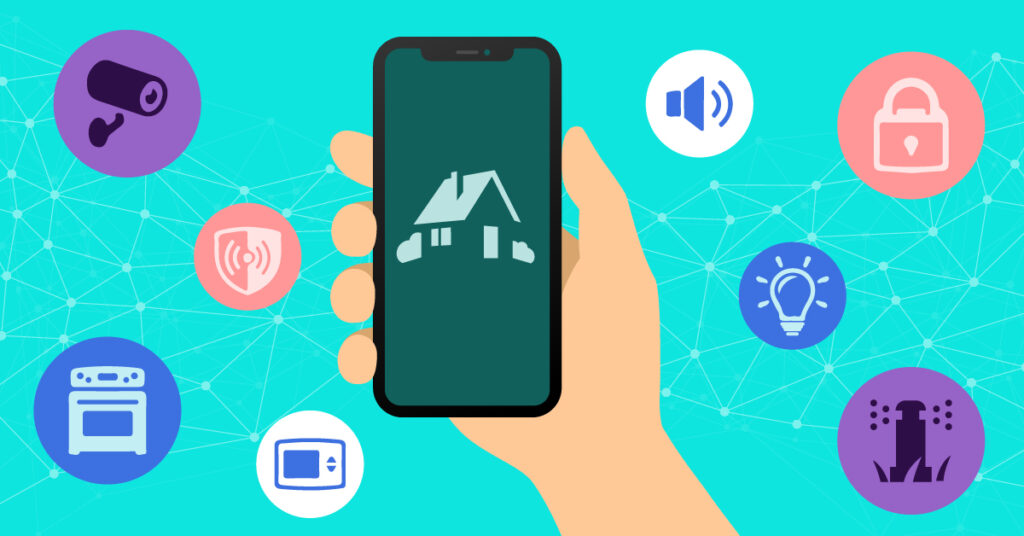Are you a fan of heist movies? If so, you’ve probably noticed that in almost every one of these films, a character uses some fancy appliance to mess with Wi-Fi signals and conceal their location from law enforcement. While this may sound far-fetched, this technology actually exists in real life.
Also known as a signal jammer, a Wi-Fi jammer is an illegal appliance that interferes with the functioning of electronic devices, particularly those that utilize wireless communication. Let’s take a closer look at how jammers work, the reasons why someone would use such a device and why they’re banned in the United States.
What Is a Signal Jammer?
A signal jammer is a device that intentionally blocks a communications server. To do this, the device broadcasts noise on a certain radio frequency so that it becomes overloaded. As a result, anyone in the vicinity is prevented from using it themselves. There are three main types of jammers:
- Cellular jammers
- GPS jammers
- Wi-Fi jammers
A cellular jammer blocks both the reception and transmission of cell phone signals. This means cell phone users in the area will not be able to make or receive calls or even access a network signal. A GPS jammer, on the other hand, interferes with satellite frequencies. This prevents a GPS device from pinpointing its own location.
Wi-Fi jammers produce frequencies designed to block Wi-Fi connections. When activated, the jammer will prevent anyone nearby from accessing any type of Wi-Fi network, including 3G, 4G, GPRS and cordless networks.
Why Would Someone Use a Wi-Fi Jammer?

There are three main reasons why someone may want to use a Wi-Fi jammer or similar device:
- To increase privacy
- To commit a crime
- To perform military or law enforcement duties
The first application is for heightened privacy. Many of us store our data digitally without giving it much thought. However, this leaves data vulnerable to hackers. A skilled hacker can easily access a Wi-Fi network you’re using, especially if it’s public (such as a library or public transit network). A Wi-Fi jammer can mask your signal, ensuring nobody accesses your sensitive information.
The second — and most nefarious — reason why someone may use a Wi-Fi jammer is to commit a crime. Many home security systems rely on cellular and Wi-Fi signals. In theory, a burglar could use a jammer to disrupt someone’s system and deactivate the alarms, thus gaining easy access to the victim’s home. The signal jammer could also prevent the homeowners from contacting the police.
The final (and only legal) application for Wi-Fi jammers is military and law enforcement duties. These professionals often use signal jammers to assist with their job requirements. For example, bomb squads may use a cellular or Wi-Fi jammer to prevent someone from detonating a bomb remotely. Jammers are also used to interfere with the communications systems used by adversaries. One example is the Counter Communications System (CCS) Block, which the US Air Force has used to disrupt enemy satellite communications.
Why Are Wi-Fi Jammers Illegal In the US?
Although Wi-Fi jammers can be used for innocuous reasons (such as protecting your own privacy), the utilization, marketing and sale of these devices are banned by the Federal Communications Commission (FCC). Even local law enforcement agencies are not allowed to use signal jammers unless the FCC grants an exception.
So, why exactly are Wi-Fi jammers illegal in the United States? The main concern is public safety. A signal jammer can prevent someone from contacting 911 or making other emergency calls. It can also stop emergency service workers from answering calls.
Another reason why Wi-Fi jammers are banned is to help prevent crime. As mentioned earlier, signal jammers can be used by burglars to interfere with home security systems. They might also be utilized to carry out petty revenge schemes and inconvenience others. If someone is caught using a signal jammer, they may face the following repercussions:
- Equipment seizure
- Monetary penalties
- Criminal sanctions
In most cases, the signal jammer will be seized by law enforcement. The perpetrator may also be fined up to $10,000 and imprisoned for up to a year.
What Should You Do If You Suspect Someone Is Using a Jammer?
Wi-Fi jammers do more than inconvenience you — in a serious situation, they can impede you from contacting emergency help. Thus, if you suspect someone is jamming your signal, you definitely don’t want to ignore the issue. The problem is that it’s virtually impossible to detect if a Wi-Fi jammer is in your area. Although some cell phone applications may claim to do this, they’re largely unreliable.
So, what should you do if your suspicions start mounting? First, try to determine if your signal problems could be caused by anything else, such as bad weather or technical issues with your provider. If you still believe that a signal jammer is the culprit, file a complaint with the FCC.
What Is the Legality of Wi-Fi Jammers Globally?
You may not be able to legally use a signal jammer in the United States, but what about in other parts of the world? The legality of Wi-Fi jammers varies greatly depending on the country. For example, some regions, like the United Kingdom and Japan, let people own jammers but don’t permit their usage. Other countries offer exemptions for certain situations, such as the following:
- Prisons: Several countries (including Canada, Mexico, New Zealand and Norway) let prison officials use signal jammers.
- Schools: In China and India, schools may use signal jammers to prevent cheating.
- Hospitals: Mexico lets hospitals use jammers to protect healthcare information.
- Libraries: In Pakistan, libraries may be allowed to use jammers.
While rules vary, you can expect Wi-Fi jammers to fall under severe restrictions in almost every area of the world. If you’re interested in using a jammer or similar device, be sure to familiarize yourself with your local laws.
Wi-Fi Jammers: Technology of the Future?
While the idea of Wi-Fi jammers may seem like an upgrade, the technology is still very controversial and is even illegal. By preventing others from tapping into your digital database, you could inadvertently be prohibiting someone from accessing emergency services.
Also, when put into the wrong hands, jammers could lead to an increase in break-ins and other criminal activity. So are Wi-Fi jammers the technology of the future? Possibly. But right now, jammers are illegal and out of reach for the average American.
You might also be interested in: The Top 5 Security Systems Offering The Best In Value, Security, And Reliability




